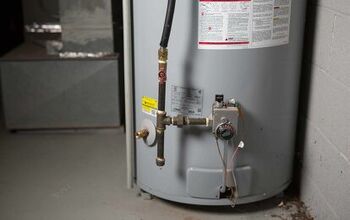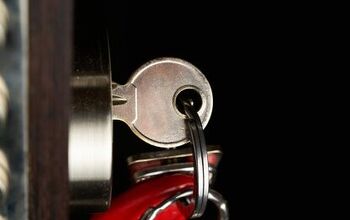How Much Does Grandfather Clock Repair Cost?

If you own a grandfather clock, it’s likely something that has been passed down in your family through the generations. To ensure that the clock stays in good working order, it should be cleaned and serviced regularly. Oftentimes, some form of clock repair work may be required for a number of reasons.
Over time, the parts of a grandfather clock (or any type of clock) will start to deteriorate. Considering the fact that grandfather clocks are often very valuable, it would be a waste to store them away once they stop functioning properly. Fortunately, there are plenty of experts that can carry out the necessary repairs for a specific price.
The average grandfather clock repair cost is $1,300, and you need to service them every 2 years. Homeowners spend an average of $2,000 for a full overhaul and repair and only $110 to reset grandfather clock. It cost another $75 if the professional has to travel more than 25 miles to repair your grandfather clock.
While the range in cost is pretty wide, the main determinant is the complexity of the repair job. Continue reading for our comprehensive breakdown on grandfather clock repair cost, along with the answers to likely many of your questions related to grandfather clocks and the maintenance they require.
Factors that Influence Repair Cost
Before you start shopping around for a grandfather clock repair professional, you need to know the type of clock that you have. This includes the make, model number, and any other applicable information about the internal mechanisms of the clock. Knowing as much as possible about your clock will ensure that you find the best person for the repair job and receive the most accurate estimate.
With that said, the major factors that influence the cost of grandfather clock repair or servicing include:
- Type of grandfather clock (including internals)
- Your location
- Service required
- Work location
1. Type of Grandfather Clock
Believe it or not, there are many different types of grandfather clocks. For example, yours may have a strike on the hour or play specific songs or sounds. Also, you should be aware of how many timings are inside of it and as many details as possible. All of these minor details can make a huge difference in terms of price, as a clock that strikes on the hour often costs nearly double the cost of normal repairs for a time-only clock.
While a time-only clock may cost between $150 and $300 to repair, a clock that strikes on the hour will usually cost between $300 and $400. Whereas, if the clock also plays a sound, you’ll want to tack on an additional $100 for the repair. Grandfather clocks that have more moving parts and timings are more expensive to repair and service since they take more time to properly evaluate.
Depending on the required work, type of clock, and the number of trains, a full grandfather clock overhaul can cost between $550 and $2,500. Not to mention, the age of your clock can influence the cost and level of work needed. The grandfather clock is one of 26 types of clocks, and it’s the most iconic.
2. Your Location
When it comes to grandfather clock repair or servicing, your best bet is to shop around and check out multiple shops in your area. In most cases, you’ll have to make an appointment and it may take several months before the shop is able to fit you in. Your specific location has an impact on the cost of repair, as different places will charge different prices and also have technicians with different skill levels.
After you’ve researched all there is to know about your grandfather clock, take your time shopping around to find the right repair shop. Check reviews and gather estimates. A reputable clock shop will be able to give you a reasonably accurate quote over the phone – assuming you’ve given them as much information as possible.
Like most other repairs around the house, skilled and experienced technicians don’t come cheap. Fortunately, most shops offer warranties so that the parts and work are covered if anything goes awry down the line.
3. Service Required
Aside from possible shipping costs, the cost to repair your grandfather clock will largely depend on the level of repairs and cleaning work that it requires. On the low end, you can expect to pay around $500. In most cases, a thorough grandfather clock service necessitates a complete overhaul. This includes taking apart the entire clock to clean, oil, tighten, and repair any parts as needed.
Afterward, the clock is reassembled and tested. When no repairs are required, a full overhaul costs the least and is the simplest form of service for a grandfather clock. If teeth need to be repaired or straightened, you can expect to pay about $10 to $30 a tooth, depending on the specific type. If the clock needs new gears, those will range between $50 and $250 since each gear has to be individually created.
The following table outlines the average prices for some of the most common grandfather clock services and repairs:
| Service Type | Average Cost |
| Grandfather clock setup | $60 to $150 |
| Clean, re-assemble, and control | $150 to $850 |
| Full overhaul | $550 to $2,500 |
| Damaged teeth | $10 to $30 per tooth |
| Spring replacement | $10 to $30 per spring |
| Bushings | $10 to $30 each |
| Pivot replacement | $65 to $110 per pivot |
| Remove excess oil | $30 to $50 |
| Developing brand-new gear | $50 to $250 per gear |
4. Work Location
If your grandfather clock has to be shipped out for repair, this must be factored into the cost of service. In some cases, shipping it out is unavoidable to ensure that your clock is repaired by specifically trained hands. Though, the cost to ship a grandfather clock can be hundreds of dollars.
Your other option is to have a professional come to you for the repair. Depending on the clock shop, a house call that’s within 25 miles could range from $50 to $100. If the service provider has to travel over 25 miles to get to your home, you’ll pay $1 to $2 per additional mile.
The most affordable option is to bring the grandfather to a shop by yourself. Though, it may be difficult to find a service provider in your area for an older clock. In this case, you can ship it out to a shop that can repair it or take it there yourself.
Additional Considerations
The older the grandfather clock, the harder it is to work on. For these clocks, the servicing will have to be done by a specialized technician. It’s important to keep in mind that, for old clocks, both the labor and shipping costs will go up. If you’re worried about the value of your particular clock, do your research and consider having an estimate done.
Then, compare the servicing cost to the value of the clock. Of course, if the clock is an important family heirloom, the cost of maintenance may be worth it to you. Though, costs can vary a pretty heft amount so in order to budget properly you will want to get a quote from your preferred service provider.
Cost to Repair Grandfather Clock
The cost to repair a grandfather clock depends on a number of factors including whether you choose to ship the clock out, drive it to a local clock shop, or pay for a house call, the type, age, and internal mechanisms of the clock, where you live, and the level of service and repairs needed.
With these factors in mind, you can expect to pay anywhere from $100 to over $2,500 to have your grandfather clock repaired. This is a pretty wide range, which makes sense considering all of the factors that go into the final cost.
Nearly all clock repair will require a full overhaul, unless it’s a quick repair job. In order to make a dirty, used, and worn-down grandfather clock functional again, a total overhaul is usually needed. This includes complete disassembly, thorough cleaning, brand-new bushings, pivot cleaning, hook tightening, click rivet tightening, correcting teeth alignment, oiling, lubrication, re-assembling, and testing.
A full overhaul of a grandfather clock starts at $550 and can go up to $2,500, depending on the aforementioned factors. In addition to repair work, most specialists can also move grandfather clocks for you or pack them up for a shipment or move. For best results, make sure that your specialist offers a guarantee that lasts about three years. This service warranty will usually cover parts and labor, so if something fails they will fix it for no additional charge.
How Often Should a Grandfather Clock Be Serviced?
Put simply, your grandfather clock should be serviced about every two years. Regular servicing will help you avoid expensive repairs and renovation costs down the line. Some sort of service should occur on your grandfather clock every couple of years, at the very least.
Though, find out what kind of clock you have and do research to confirm if it’s worth servicing before making any major investments. If the clock isn’t worth much, it may cost more than the clock’s true value to service it.
Troubleshooting A Stopped Grandfather Clock
If you’ve recently moved a grandfather clock, you may have found that the clock has stopped. This is a common occurrence and although many assume that these clocks are delicate, they are designed to be pretty durable. When your grandfather clock is no longer functioning as expected after a recent move, here are some problems to look out for:
- Give the pendulum a gentle push with your hand to verify that it is swinging freely and not touching the weights or chime rods.
- Look at the dial and check that the hands aren’t touching or hanging on the second hand or any components of the dial.
- Listen to the grandfather clock’s ticking to verify that you are hearing an even “tick-tock” sound. There should be even space between the tick and the tock. If there isn’t, the clock is out of beat and must be corrected.
- Check the grandfather clock’s leveling. Most grandfather clocks have four levelers on the bottom corner that may need adjusting.
If the above issues don’t seem to be the root cause, it’s best to seek the help of a professional. Or, if you don’t feel confident in your own troubleshooting abilities, reach out to a technician near you.
Related Questions
How often should a grandfather clock be oiled?
Grandfather clocks should be oiled roughly every five years. Though, oiling takes professional expertise, as it involves moving the dial and hands so the front of the movement can be accessed and special oils can be applied.Oiling is very important because clocks are very delicate and in order for them to track time properly, all the parts have to be functioning smoothly. By oiling your grandfather clock you are helping to reduce friction with the internal mechanisms.
How long do grandfather clocks last?
Most high-quality, newer grandfather clocks will run consistently for over twenty years after set-up and with no maintenance. Although, oiling the clock every couple of years can extend its life and make it last a lifetime (or even two).
Is it okay to turn back a grandfather clock?
Yes, it is okay to turn back a grandfather clock. To do this, you’ll want to move the minute hand backward, or counter-clockwise. Chiming, clock striking, or the clock chiming a bit differently during or after this procedure is fine. About an hour after it has been turned back, the clock should sync back up and function as normal.Though, if you have issues after your clock is turned back, this is usually a cause for concern. Contact a technician to take a look. In most cases, it is a simple fix like a timing malfunction.
How often do you wind a grandfather clock?
Most grandfather clocks are designed to run for seven or eight days. When you take this into account, your grandfather clock should be wound about once a week to keep it running properly and tracking time accurately. Additionally, the weights inside of the clock have to be raised every seven days to wind it and keep it running. If not, the clock will stop.
Related Articles

Jessica considers herself a home improvement and design enthusiast. She grew up surrounded by constant home improvement projects and owes most of what she knows to helping her dad renovate her childhood home. Being a Los Angeles resident, Jessica spends a lot of her time looking for her next DIY project and sharing her love for home design.
More by Jessica Stone



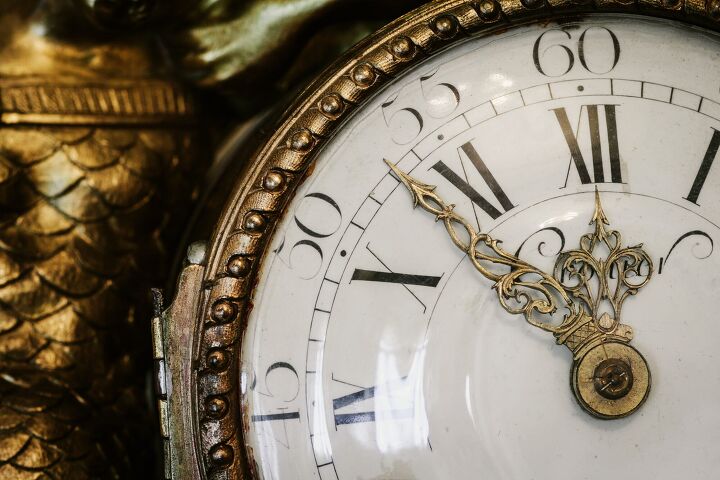






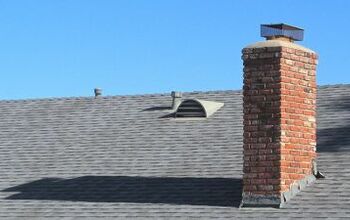
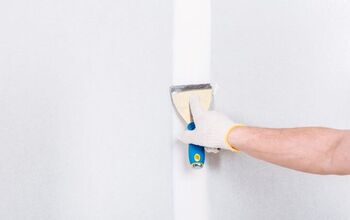

![How Much Do Pool Repairs Cost? [By Type & Material]](https://cdn-fastly.upgradedhome.com/media/2023/07/31/9103564/how-much-do-pool-repairs-cost-by-type-material.jpg?size=350x220)
![How Much Does Dryer Repair Cost? [Average Rates by Part]](https://cdn-fastly.upgradedhome.com/media/2023/07/31/9103276/how-much-does-dryer-repair-cost-average-rates-by-part.jpg?size=350x220)
